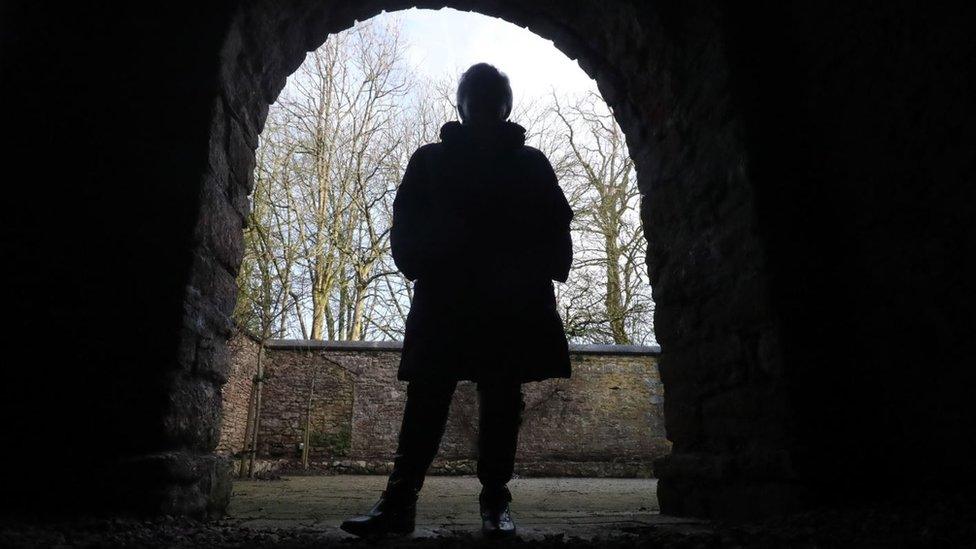Mother-and-baby homes: Panel backs public inquiry
- Published
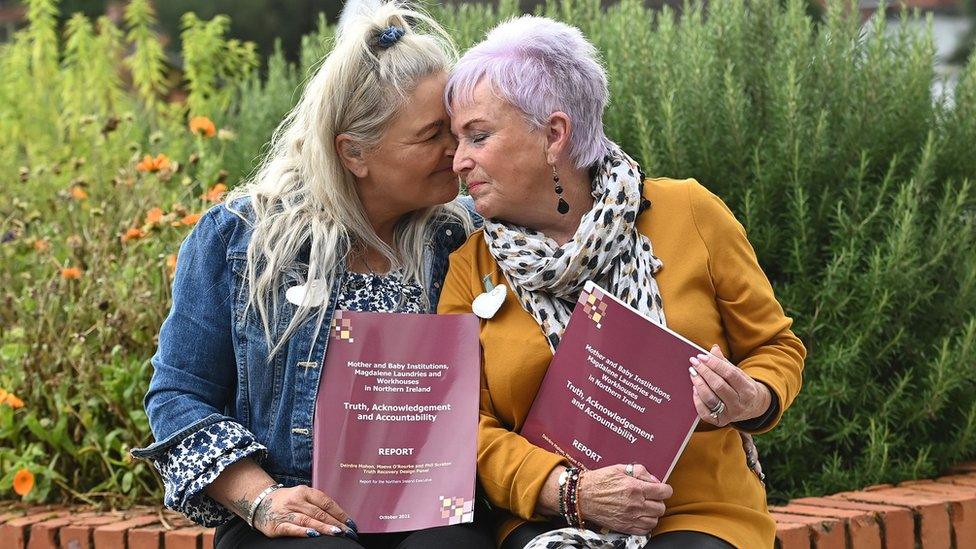
Mechelle Dillon (left) and Adele Johnstone have campaigned for a full statutory inquiry
A panel has called for a public inquiry to be held into institutions for unmarried mothers in Northern Ireland.
The three experts also advised that there should be immediate redress payments to survivors.
The devolved government committed to an investigation after research into mother-and-baby homes and Magdalene Laundries was published.
Women said they were detained against their will, used as unpaid labour and had to give up babies for adoption.
The primary recommendation in Tuesday's report is to establish an "integrated investigation" by a non-statutory independent panel, feeding into a statutory public inquiry.
There are also further recommendations for supporting measures to ensure that victims and survivors can participate in the investigation, including access to records legislation.
First Minister Paul Givan, Deputy First Minister Michelle O'Neill and Health Minister Robin Swann are due to meet the panel on Tuesday evening.
They welcomed the report and added that the Northern Ireland Executive would consider the recommendations and "next steps will be set out by the executive as soon as possible".
'A stain on our society'
Mr Givan said the issue was a priority for the executive.
"I would hope within the next number of weeks the executive will be in a position to take definitive decisions around what the next steps should be," he said.
Ms O'Neill said the report was "another step forward for victims and survivors", adding that she supported a full public enquiry.
"The barbaric way in which women and girls were treated over many decades is utterly shameful and a stain on our society," she said.
'One of the great scandals of our time'
The Truth Recovery Design Panel recommends:
Urgent appointment of a non-statutory independent panel of experts, including those with personal experience
Legislation to appoint a statutory public inquiry
New legislation to secure access to records for survivors and their families
Immediate redress payments from the beginning of the investigation
The panel, along with victims and survivors, called on "all state, religious and other institutions, agencies, organisations and individuals complicit in the processes of institutionalisation and forced labour, family separation and adoption to act without delay in issuing unqualified apologies".
They said that they should clearly state their role, "accept responsibility for harms done; demonstrate sincerity in their apology; and demonstrate the safeguards now in place to ensure there will be no repetition of the inhumanity and suffering to which they contributed".
Maria Cogley, who was born in the Marianvale home in Belfast, told the BBC's Evening Extra programme that "now is the time to take it [an inquiry] forwards".
"This is the start," she said.
"Now we need the Department of Health and Robin Swann to sign this off as quickly as possible, in full, and the recommendations that are made today, in the report, that's the only way we're going to get the answers to the questions and shine some light on the truth."
The homes and laundries across the island of Ireland have in recent years come to the attention of United Nations (UN) human rights monitors.
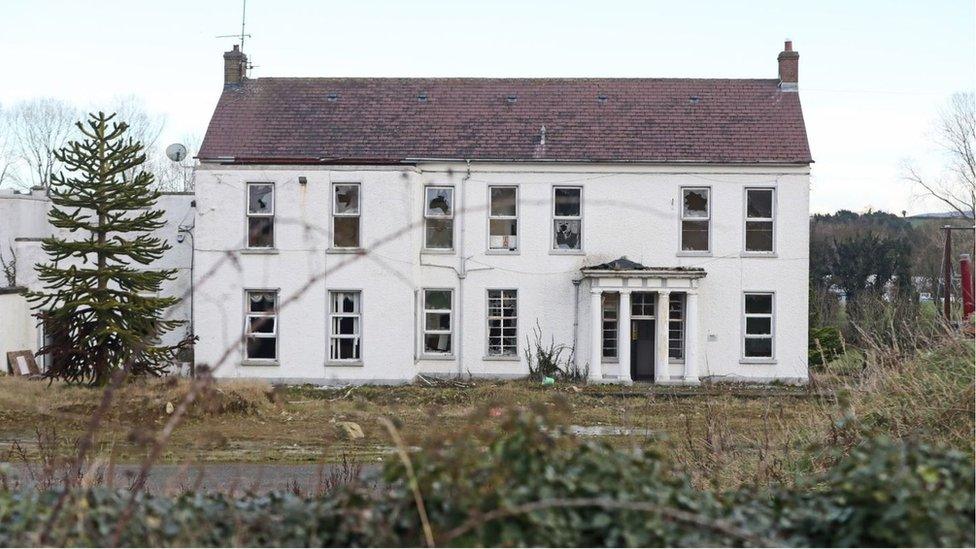
The former nuns' residence at the Marianvale mother-and-baby home in Newry, County Down
Dr Lia Nadaraia, who sits on the UN's Committee Against Torture, and Committee for the Elimination of Discrimination Against Women (CEDAW), told the BBC there was evidence of "systematic torture and ill-treatment".
"Girls and women were involuntarily detained, stripped of their identities, forced to work constantly, and not paid wages," she said.
Dr Nadaraia said any investigation should be aimed at uncovering the full truth about what happened in the institutions, bringing about prosecutions if possible, and providing financial redress for victims.
'One of the great scandals of our time'
The Truth Recovery Design Panel, which was established by the Stormont Executive in March, has been working with survivors to come up with recommendations.
The three members are Professor Phil Scraton from Queen's University law school, Dr Maeve O'Rourke from the Irish Centre for Human Rights at the National University of Ireland (NUI) Galway, and Deirdre Mahon, executive director for social work at the Western Health Trust.
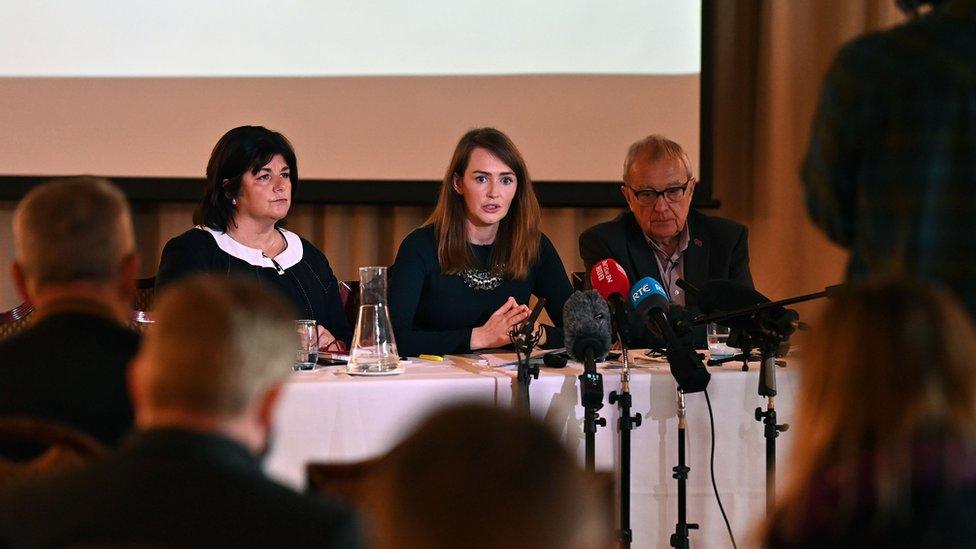
The three panel members recommended a public inquiry into the institutions
Prof Scraton said that "lives and futures lost through the cruelty within these institutions cannot be recovered, but we must acknowledge the inter-generational pain and suffering inflicted on victims, survivors and families".
At a press conference, Prof Scraton thanked the victims and survivors, and their families, but said that their pain "will never, ever, be assuaged by whatever we do because this is one of the great scandals of our time".
'How dare we, as a society, blame those who suffered the most?'
Dr O'Rourke said that any future investigation must be accessible to everyone involved, in particular those with disabilities.
"The key priorities raised by survivors and the relatives are that funding and resources should be sufficient to ensure effective and sustainable implementation of all the panel's recommendations; that the human rights of survivors and relatives are central to the recommendations' implementation; that all of the measures recommended must ensure full access for victims, survivors and relatives of the deceased to information," she said.
What did the report in January say?
The research report, published in January, found at least 10,500 women passed through mother-and-baby homes.
There were eight institutions in Northern Ireland, run by Catholic and Protestant religious organisations.
More than 3,000 women spent time in a Magdalene Laundry.
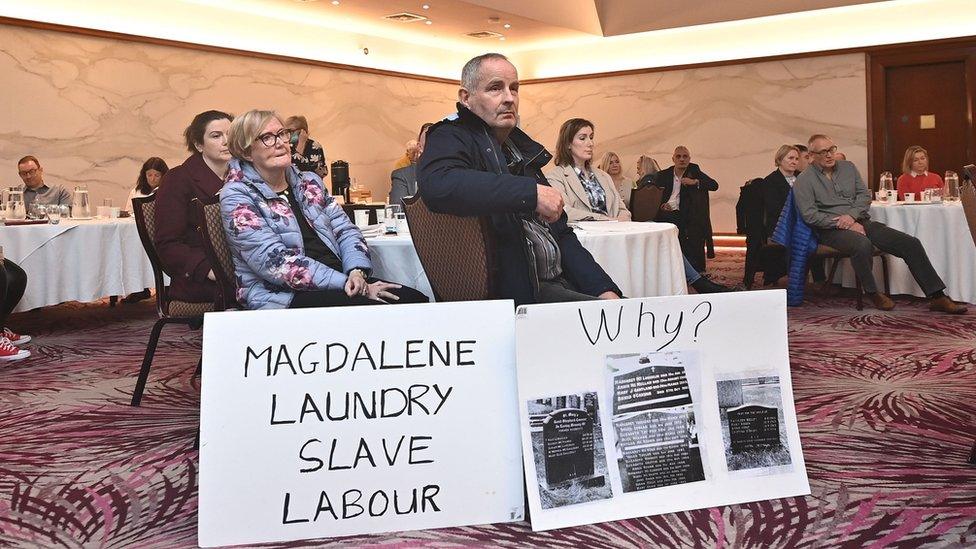
These institutions were, in effect, workhouses, and were situated in Londonderry, Belfast, and Newry.
The researchers recommended there should be more investigations into levels of infant mortality among children who were born to mothers in the homes.
They also said there were more questions to be asked about potential illegal adoptions, including the movement of babies across the border with the Republic of Ireland.
Religious orders, and the head of the Catholic Church in Ireland, Archbishop Eamon Martin, have said they will co-operate with the new investigation.
There has already been a state inquiry into mother-and-baby homes in the Republic of Ireland.
Campaigners in Northern Ireland - including the survivors' group Birth Mothers and Their Children For Justice NI - have said the investigation must have the power to compel religious organisations and state agencies to provide records and witnesses.
- Published5 October 2021
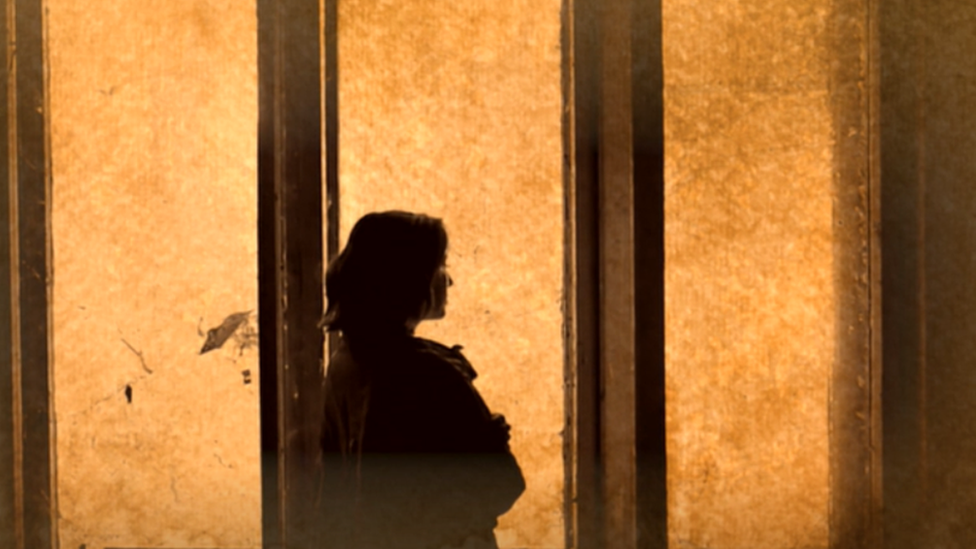
- Published5 October 2021
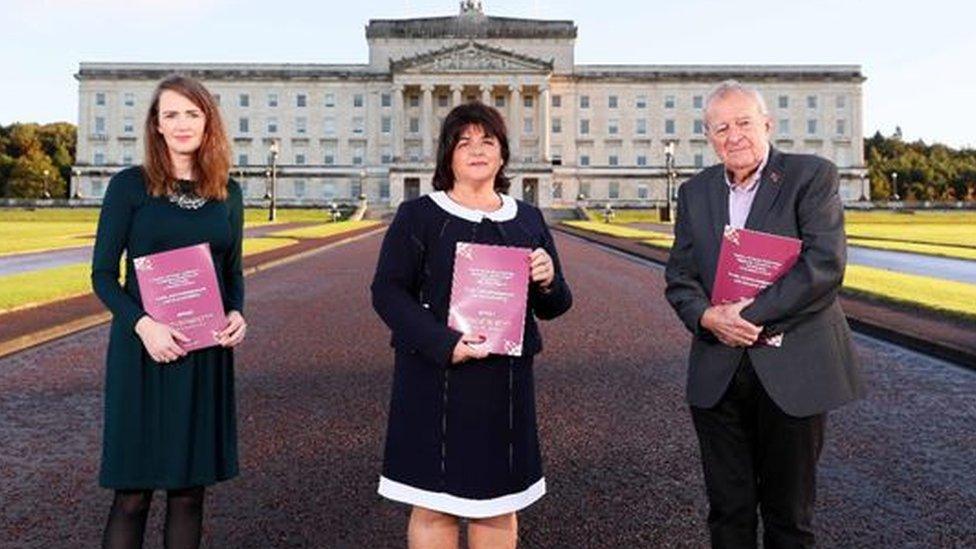
- Published26 January 2021

- Published26 January 2021
